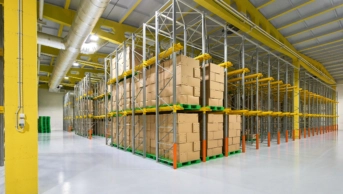
Shutterstock.com
The government has warned the health and social care sector that medicines could be delayed at the UK border for a period of up to six months in the event of a ‘no-deal’ Brexit.
In a letter sent on 7 December 2018, Matt Hancock, the health and social care secretary, said revised cross-government planning assumptions show that there will be “significantly reduced access” into Dover and Folkstone crossings for up to six months, “where the frequent and closed-loop nature of these mean that both exports and imports would be affected” by extra checks on people and goods in the case of the UK leaving the EU without a deal.
The Department of Health and Social Care (DHSC) had previously written to the pharmaceutical sector on 23 August 2018, saying that the government was preparing for a six-week stockpile of medicines supply in case of delays at the UK border.
The latest letter said: “The European Commission has made it clear that, in the event of a ‘no deal’ scenario, it will impose full third-country controls on people and goods entering the EU from the UK. Whether this happens or not is in their hands, not ours.”
It added: “The revised cross-government planning assumptions show that there will be significantly reduced access across the short straits, for up to six months.”
The letter noted that as a result of the new planning assumptions, the six-week stockpile of medicines “will now need to be supplemented with additional actions”, but did not give further details on what this might entail.
Mike Thompson, chief executive of the Association of the British Pharmaceutical Industry, said the new planning assumption “is stark” and warned that further stockpiling of medicines “is not the solution to this problem”.
“Pharmaceutical companies continue to do everything in their power to make sure that patients get access to medicines, whatever the Brexit scenario,” he said. “This includes duplicating processes, changing supply routes and stockpiling medicines in line with the government’s guidance. However, we have been clear that there are things which are out of our control.”
Ash Soni, president of the Royal Pharmaceutical Society, said: “The conversation that we had with DHSC was that the six weeks of additional stock was for a minimum of six months. It wasn’t just six weeks and then at the end of six weeks it goes back to normal — it was that they have to retain an extra six weeks’ stock for at least six months.”
He added that this plan “should provide greater reassurance for patients and hopefully for pharmacy”.
However, the DHSC told The Pharmaceutical Journal that the six-week stockpile was only intended to sustain supplies through the initial stages after 29 March 2019 when the UK is due to leave the EU.
After this the DHSC said medicines would be prioritised and transported through alternative routes.


